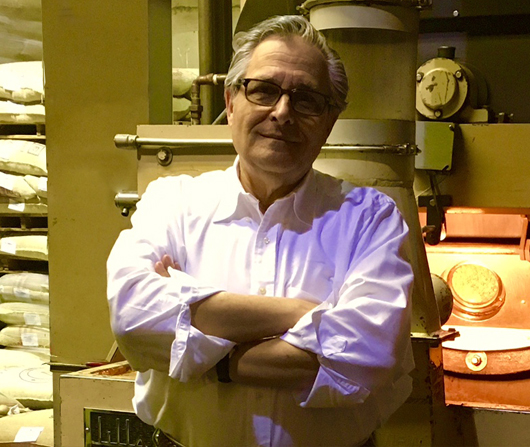- Default welcome msg!
- Contact Us
- Create an Account

I have been learning, and writing about coffee for as long as I can remember. I was a boy when James “Jim” Quinn had taken over the reins of Tea and Coffee Trade Journal in 1956. By 1976 he was tired and discouraged with the effects of industry consolidation in the aftermath of World War II which had left few players in the US roasting field. Jim was a New Yorker where the destruction of the independent roaster community was almost complete. A combination of events including the widening of Water Street, the destruction of New York as a port city (a story I told in T&CTJ 07/13 p.48) and the unspoken anti-manufacturing anti-blue collar political realities of the City made him, and many other trade watchers lose heart. Coffee in cans and jars, sold from the grocer’s shelf was, as far as Jim was concerned, dead and buried without the benefit of clergy, to consumers who had forgotten how delicious coffee could really be. Coffee had become a commodity. When the only difference between brands was the color of the can, was there any use to root for the trade?
Advertising revenues at Tea and Coffee fell with the demise of the New York trade, and Quinn’s interest in the trade journal and the coffee industry evaporated with them. He hired a young woman, Jane Phillips (McCabe) to help him out, and she brought a refreshing young outlook to the book. It was Janey who intuitively understood that there was something new just beginning for coffee, and it was she who brought Jim to visit me at Gillies 1840 on Bleecker Street in 1980. We walked amid the brass and oak fixtures, on the creaky oak floor, among the burlap sacks, barrels and fixtures. We had lunch at O’Henry’s on 6th Avenue, and we talked. Toward the end of the afternoon Jim decided that rather than have Jane write a piece on this new thing called specialty coffee he would ask me to write one, which became a series, which became a contributing editorship that continues today.
Good coffee has always been with us, but specialty coffee as we have learned to understand and define it was just poking its head out of the ooze that was the primordial post war coffee soup at this time. The community was made up of shops that sold beans and wholesalers who roasted them. There were almost no roasting retailers, and specialty coffee beverage retailing businesses had not made the scene. The wholesalers showed their wares at the Summer (New York) and Winter (San Francisco) Fancy Food Shows. The factors in the trade in that first generation were, in the West, Sark’s, and United Coffee Corp., Superior Coffee Co. in the Midwest, and White Coffee Corp, Wechsler Coffee’s Van Cortland division (later Van Courtladt Importers), and Hena Inc, competing for the high end trade in the East. Above it all was James G. Gill Co., Norfolk Virginia, whose First Colony brand, introduced at Topley’s at Colonial Williamsburg, could be found in high end department store gourmet shops throughout the country. Gillies, with our retail shops in Manhattan, and our small wholesale business were then as now, proud to be in the fray, and too small to claim a leadership role in pounds-of-coffee-roasted.
There had been generations of history that had preceded this moment for coffee. I have a sense and an affection for the study of history, and had been working with beans quite some years when this moment came. I recognized this time as a turning point. The SCAA, and Roasters Guild, the rise of great chains, and fall of great specialty brands were yet to come. But, you could smell the rise of good coffee in the air by 1980. A generation, and more has passed since that instant, and there is, I believe, more good stuff yet to come for good coffee. In this space you will find reminiscences, anecdotes, and stories, opinion and the facts as I know them; casting light on coffee, my business, the trade, tradespeople, and customers from whom I take warmth. I may also use this space to invite friends to post, and I may also post here previously published material that may be of interest. Mostly I expect to share the flavor of my coffee life with you. You are invited to stop by for a taste, at your convenience.
Donald Schoenholt
coffeeman
Dear Don , On behalf of every thirty-something in the specialty coffee business, Third wave snobs included. I would like to say thank you. If it were not for you , my father and a hanfull of people who fought the uphill battle and paved the way who knows where we would be today.